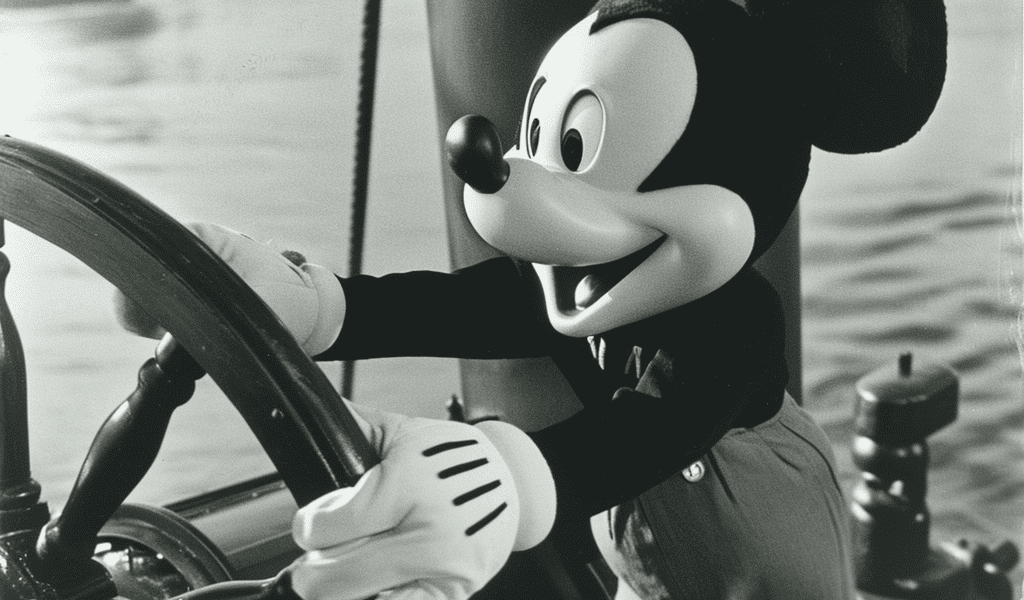On January 1, 2024, an early Walt Disney movie featuring the first appearance of Mickey Mouse, Steamboat Willie, moved into the public domain. This development raises questions about the implications for the iconic character, Mickey Mouse, as we know him today.
However, it is important to note that only the specific appearance of Mickey Mouse in Steamboat Willie is now part of the public domain, not the character as a whole. This means that people can creatively reuse only the Mickey Mouse from this particular film, and not from subsequent works such as Fantasia or Mickey Mouse Clubhouse.
While the character’s appearance in the 1928 film is now free for creative reuse, new versions of Mickey Mouse remain under copyright. Copyright protection extends to creative characters, movies, books, plays, songs, and more. Additionally, Mickey Mouse is also trademarked, providing further protection for the character as a brand and logo.
Trademark law, which focuses on protecting brands, logos, and names, ensures that entities like Disney can maintain control over the use of the Mickey Mouse name and logo. This means that as long as the trademark remains distinctive in the supply of goods and services, the owner of the trademark retains the right to protect it.
This development has raised concerns among copyright scholars, who worry about the potential undermining of the public domain by the perpetual extension of trademark protection. While the Steamboat Willie version of Mickey Mouse is now available for creative reuse, the broader implications of trademark law on intellectual property continue to be a subject of debate and scrutiny.





